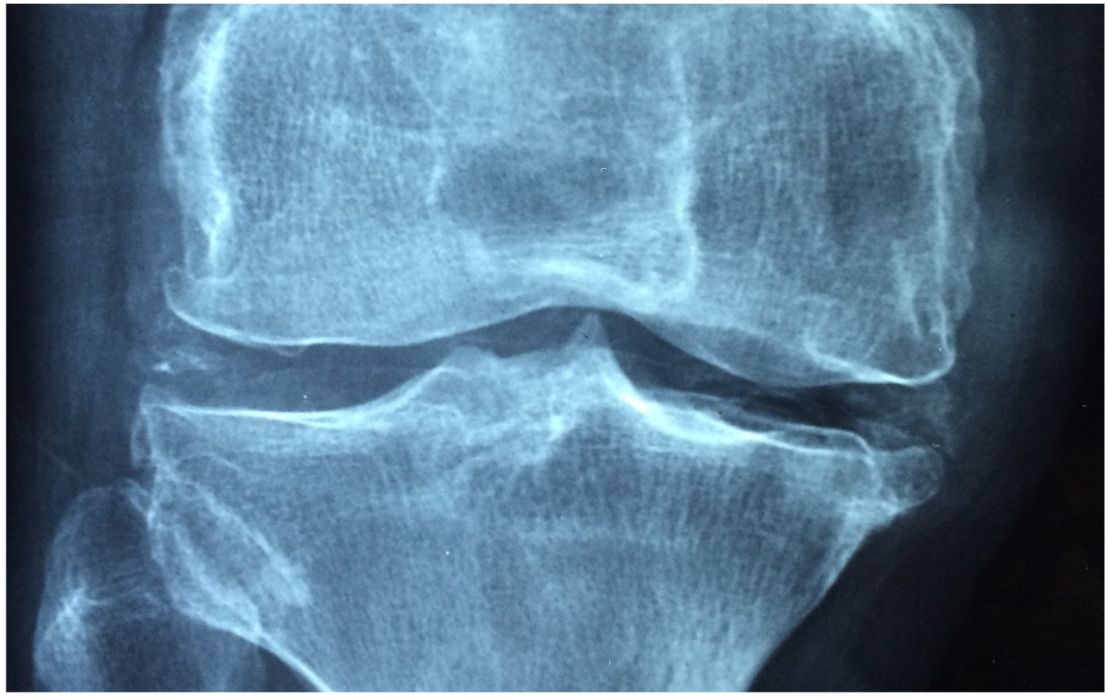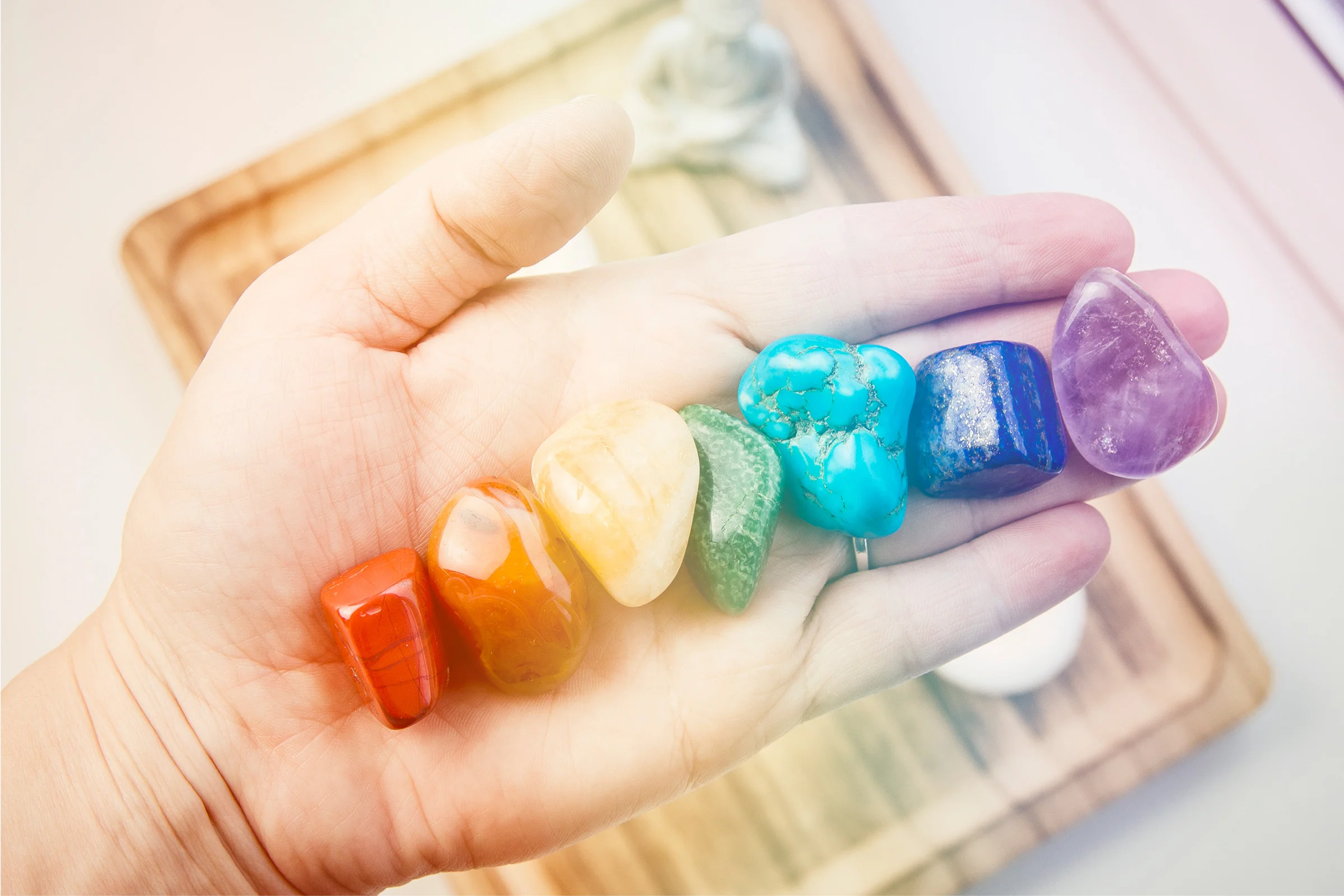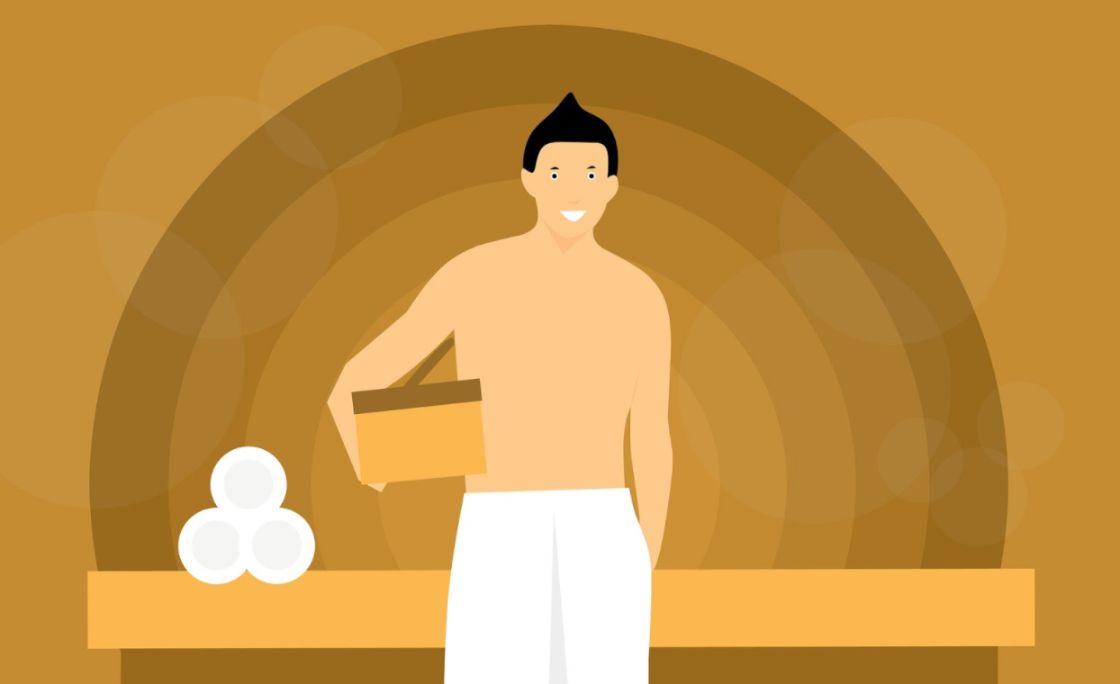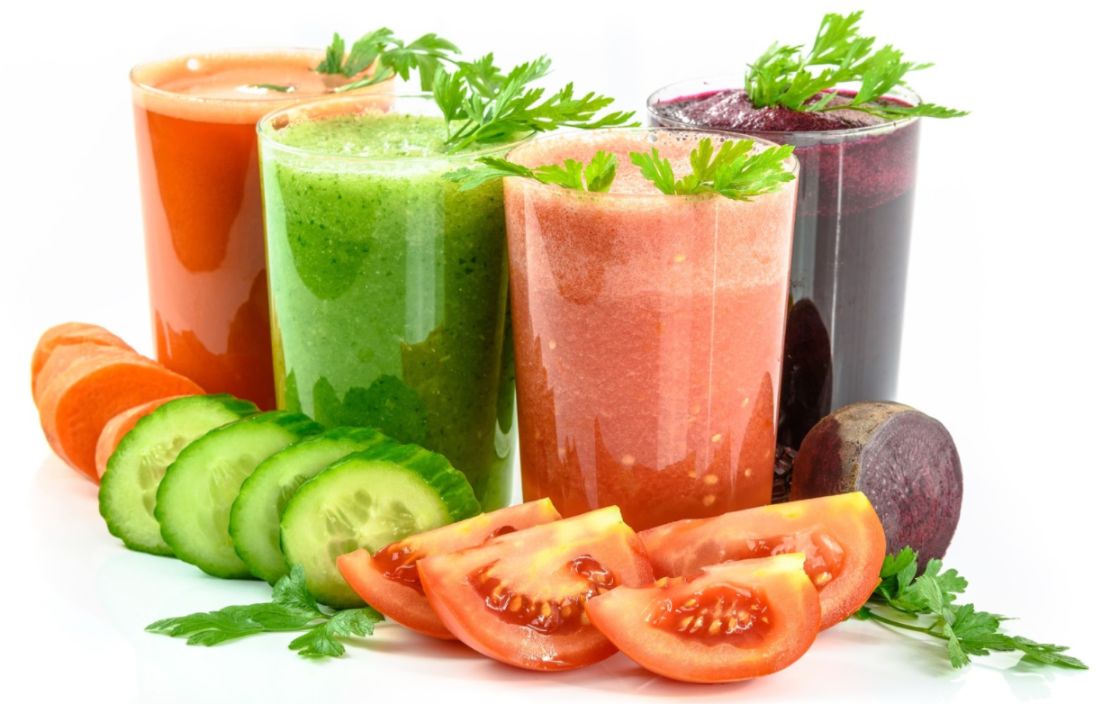Swelling lymph nodes in your neck and throat are usually one of the first signs that your body is fighting an infection.
As such, your enlarged lymph nodes will often be accompanied by the other painful, bothersome symptoms typical of a respiratory infection.
This condition, also known as lymphadenitis, can be the last thing you want to deal with when you’re battling a nasty cold.
Thankfully, there’s no shortage of treatment options for swelling in your lymph nodes available right at home.
If you or a family member are suffering from swelling of the lymph nodes, keep reading for 32 of the most effective (and affordable) home remedies.
As an added bonus, you’ll also find most of these home remedy suggestions to be highly effective against the other symptoms of common respiratory infections, as well as the underlying infections themselves.
So, even if you aren’t prone to lymphadenitis, or have already moved past that stage of your cold, you may find the 32 home remedies listed below to be very helpful.
These solutions are fast, easy, affordable, and, most importantly, effective.
They’re no pain in the neck!
What are Lymph Nodes?
There’s a good reason why your lymph nodes swell when you’re coming down with an infection.
The lymph nodes, or lymph glands, are key checkpoints in your immune system, which you can think of as your body’s filtration system.
These tiny, bean-shaped glands filter fluids moving through your bloodstream.
Most substances move through your lymph nodes without issue.
But whenever foreign bodies, such as bacteria, appear, the lymph nodes try to trap them inside so they can be destroyed by a type of white blood cells called lymphocytes.
This battle between the bacteria and your lymphocytes causes your lymph nodes to swell.
That’s why your lymph nodes may feel hard before you even realize you have a cold.
The lymph nodes you’re probably most familiar with are on the sides of your neck, under your jaw, and behind your ears.
This is because lymph node swelling is most commonly associated with colds and infections that manifest in the respiratory system.
However, you have lymph nodes throughout your body, including above your collarbone, under your arms, and near your groin.
How to Prevent Swollen Lymph Nodes
Because lymph nodes most often swell as a response to an infection, the best ways to prevent lymphadenitis are, not surprisingly, also common sense tips for avoiding colds.
Potential Problems to which Swollen Lymph Nodes Can Lead
- Wash your hands frequently with soap and water. If soap and water aren’t available, use an alcohol-based hand sanitizer instead.
- Avoid touching your face excessively, particularly if it’s been a while since you last washed your hands.
- Whenever possible, keep your distance from people who are already sick.
- Keep your home and workspace clean. Regularly disinfect anything that sees frequent human contact, including light switches, doorknobs, and phones.
- Cut back on smoking. Better yet, quit altogether.
- Do your best to minimize physical and mental stress. Get an adequate amount of sleep, and keep regular hours.
- Maintain a healthy diet, including lots of fruit, vegetables, and a diverse offering of vitamins. If you’re deficient in any vitamins, consider buying a supplement at your local pharmacy. Don’t forget to drink lots of water; ideally 13 eight-ounce daily servings for men, and 9 for women.
The first issues you’ll notice when dealing with enlarged lymph nodes are, of course, swelling, pain, and tenderness in the area.
Depending on the underlying cause, you might also experience the following symptoms.
- Sore throat, runny nose, and other common signs of a respiratory infection
- Swelling throughout your body, particularly at the previously-mentioned sites of your lymph nodes
- Fever and excessive sweating, especially when you’re trying to sleep
If the underlying infection isn’t properly treated, you may also encounter these more serious problems.
- Bloodstream infection: If the infection breaks free of your lymph nodes, it can enter the bloodstream. Also known as bacteremia, this is a serious condition that may require hospitalization. If allowed to advance to sepsis, it could be deadly.
- Abscesses: Fluids, dead bacteria, and white blood cells may pool near your lymph nodes in a formation called an abscess. In many cases, these will need to be drained by a medical professional, and you will be prescribed antibiotics.
When to See a Doctor
Though your lymph nodes most commonly swell in response to an everyday infection, it may also be a sign of a more serious condition, ranging from HIV to lupus to different forms of cancer. Don’t hesitate to see a doctor if your lymph nodes:
- Are swollen without an immediately obvious explanation, such as a cold
- Are hard to the touch, and don’t have give when you press on them
- Have been swollen for two or more weeks, or continue to get larger
- Come with regular, ceaseless night sweats or fever, or unexpected weight loss
As mentioned in the previous section, you will also require medical attention if you believe you’re suffering from abscesses or a bloodstream infection.
These conditions are potentially fatal, and should be treated seriously.
You may require antibiotics or hospitalization, so don’t delay.
The 32 home remedies listed below should be effective in curing most cases of lymphadenitis.
However, if you have any doubt or don’t find relief, see a doctor for professional swollen lymph nodes treatment.
Swollen Lymph Node Remedies
Aloe Vera
More than just a great skin ointment, aloe vera has all-natural anti-inflammatory and antibacterial properties.
Gently blend a dab of this tropical plant’s gel on the skin over your lymph nodes to experience quick pain relief.
- Take a piece of aloe vera, and squeeze its gel onto your finger.
- Rub the gel on your skin, over your lymph nodes.
- Cover the areas with cloth or a bit of gauze.
- Wait for about 25 minutes, then remove the covering.
- Repeat this process two or three times per week.
Apple Cider Vinegar
Apple cider vinegar is effective against infections throughout your body, making it a great option for lymph node swelling.
- Combine one tablespoon of apple cider vinegar and some honey in a glass of warm water.
- Drink twice a day, at breakfast and before bed.
OR
- Combine one tablespoon of apple cider vinegar with a cup of warm water.
- Pour this on a cloth, and hold it over your lymph nodes for five minutes.
- Rinse off. Repeat once or twice daily for a week.
Baking Soda and Sea Salt Solution
Baking soda, also known as sodium bicarbonate or sodium hydrogen carbonate, is one of the most versatile home remedies you’ll find.
Combining it with sea salt and water yields a formula great for swollen lymph glands.
- Fill a drinking glass with water, and mix in one teaspoon of baking soda and one teaspoon of sea salt.
- Stir this solution well, until you see the baking soda and sea salt dissolve.
- Drink; repeat once per day until you see a reduction in swelling.
Basil and Cinnamon
Basil and cinnamon, two kitchen standards you’re likely to find on most spice racks, combine for a great home remedy for lymph node swelling.
- Bring three cups of water to a boil.
- Add in two teaspoons each of basil and cinnamon, and allow the mixture to simmer for about 15 minutes.
- Filter through a strainer to remove any solid particles.
- Slowly sip a cup of this blend, as you would a cup of hot tea.
- Repeat three times per day until your lymph nodes experience relief.
Castor Oil
Castor oil is an anti-inflammatory and analgesic that promotes blood flow and removes harmful substances from your body.
- Apply a thin layer of castor oil to the skin over your lymph nodes, and massage gently.
- Wet a washcloth with hot water, then wring it out so it’s warm and damp.
- Hold this cloth to the skin where you just applied the castor oil for about 5 to 10 minutes.
- Rinse off your skin with warm water.
- Repeat twice daily for a week, or until you notice improvement.
Cayenne Pepper
Like many spicy foods, cayenne pepper can dilate the blood vessels, promoting circulation.
Increased blood flows means faster distribution of nutrients and oxygen.
Eating spicy foods is a tried and true way to clear up a clogged respiratory system, but if you don’t have the stomach for them, you can also make a sort of cayenne pepper tea.
- Fill a drinking glass with warm water.
- Stir in ½ tablespoon of powdered cayenne pepper, and one tablespoon of honey.
- Drink three glasses of this blend per day for one week.
Chamomile Tea
Another popular tea additive to fight swollen lymph glands is chamomile.
While it’s ideal to use fresh flowers, chamomile tea bags could also be effective if you don’t have the flowers on hand.
- Fill a teacup with hot water.
- Add in your chamomile flowers (or tea bag).
- Let the tea steep for six minutes. Consider covering the cup to trap in heat.
- Strain the tea, and, if you like, add honey.
- Try to drink two or three cups a day, or until you see results.
Cleavers
Cleavers, also called goosegrass or sticky weed, can be added to hot water as either a fresh herb or a tincture.
Note: Cleavers may interact with certain medications, so consult a doctor before trying this home remedy.
- Fill a teacup with hot water.
- Stir in either two teaspoons of fresh cleavers, or 20 drops of cleavers tincture.
- Steep for ten minutes before straining and drinking.
- If you used fresh cleavers, drink two or three cups daily. However, if you used the tincture, drink only one cup per day.
Coconut Oil
Much like aloe vera, coconut oil is a popular skin ointment that actually has many other useful properties.
There are also multiple ways you can consume this great anti-inflammatory, antibacterial, and antiviral, making it a versatile home remedy option.
- Heat coconut oil until it’s warm, but not hot.
- After making sure it’s cool enough to touch, gently massage the warm coconut oil into the skin above your affected lymph nodes.
- If you don’t experience relief, you can also swallow one tablespoon of undiluted extra-virgin coconut oil daily.
Echinacea
Echinacea is a plant that can relieve swollen lymph glands as a tea additive, oil, or supplement.
Note: Ask your doctor before using Echinacea. Echinacea should not be used by children under 12, pregnant or lactating women, or people with autoimmune disorders.
It should not be used for more than one week.
- Drink two cups of tea strained with Echinacea flowers daily.
OR
- Apply an Echinacea-based balm to the affected area two or three times a day.
OR
- Take two 300mg Echinacea supplements each day.
Fresh Lemon Juice and Honey
Lemon juice and honey are known for their medicinal properties, and can be found in most well-stocked kitchens.
This drink can also soothe the sore throat that often accompanies swollen lymph glands.
And it doesn’t hurt that these ingredients taste great!
- Fill a drinking glass with warm water.
- Add in one or two teaspoons of honey, and all the juice you can squeeze from one fresh lemon.
- Stir thoroughly before drinking.
- Repeat as necessary until you see a reduction in swelling in your lymph nodes.
Gargling
Gargling is not only a great way to relieve the symptoms of swollen lymph glands and upper respiratory infections, but also may help prevent them in the first place.
- Fill a glass with warm water.
- Add in ½ teaspoon of salt, and stir until you see the salt fully dissolve.
- Take a mouthful of the water, tilt your head back, and use the muscles in your throat to bubble the water in your mouth.
- Spit out the water and rinse your mouth.
- Repeat two or three times every day.
Garlic
Garlic is another home remedy you’ll find in most kitchens.
It’s also one of the simplest options out there, because, in many cases, all you have to do is incorporate it into your regular diet.
Add crushed garlic to your daily meals, or eat a couple of raw cloves on their own each day.
If this doesn’t help, try the following.
- Gently rub garlic oil onto the affected area for a couple of minutes, twice daily.
OR
- Ask your doctor if daily garlic supplements are right for you.
Honey
Another kitchen staple, honey can alleviate swollen lymph glands and any throat soreness you may also have.
You can try the aforementioned solution with lemon juice, add one tablespoon to your daily tea, or just swallow two teaspoons of straight honey twice a day.
There are also the following options.
- Massage raw honey into the skin above your swollen nodes. Let it sit for 15 minutes, then wash it off. Repeat twice daily.
OR
- Drink a glass of warm water mixed with one teaspoon of honey each day.
Hot and Cold Baths
Alternating hot and cold baths is a way both to soothe the pain from swollen lymph glands and to strike at the congestion that may be causing it.
- Start your bath with cold water. This will take the pain out of the swelling, and slow the blood flow.
- After a few minutes, switch to hot water. This will restore and increase circulation, ease your muscles, and give off steam to loosen any mucus in your respiratory system.
- Repeat this every time you bathe for both immediate and long-term relief.
Lavender and Tea Tree Oils
These essential oils both help reduce congestion and fight infections.
Take them in via steam for fast access to your respiratory system and lymph nodes.
- Fill a small bowl with hot water.
- Add in three or four drops of both essential oils.
- Lower your head to the bowl. Drape a towel over your head and the bowl to trap in the steam.
- Breathe in the steam, hold your breath for four or five seconds, then exhale.
- Repeat this for 15 to 20 minutes, once a day.
Lemon
As mentioned earlier, lemon juice can be mixed with honey to form a tasty and effective drink.
But that’s not the only way lemon can help shrink swollen lymph glands, soothe sore throats, and thin out mucus.
- Cut a lemon in half.
- Sprinkle one half with salt and black pepper.
- Lick the surface of the lemon. Repeat several times per day.
OR
- Fill a drinking glass with a mixture of warm water and lemon juice.
- As described above, gargle with this mixture. Repeat multiple times daily.
Massage
Lots of home remedies covered in this article involve massaging one oil or another into the affected area.
But, if you don’t have any of the oils on hand, a simple dry massage may suffice.
Whether administered by yourself, a loved one, or a professional masseuse, massages are a great way to stimulate blood flow and relieve stress while you’re battling an infection.
- Use your fingers to rub gently the skin around your swollen lymph glands for about 10 minutes.
- Repeat several times daily, two or three times a week.
Mint
The menthol found in mint provides a cooling sensation that eases the pain caused by lymph node swelling.
Aside from the many mint-based teas out there, you can try one of these remedies.
- Mix two tablespoons of dried mint leaf powder with a cup of hot water.
- Give the solution a few minutes to steep, then sip slowly.
- Repeat several times daily for one week.
OR
- Grind fresh mint leaves until you’ve extracted two cups of the juice inside.
- Drink this twice daily for one week.
Mullein Leaves
The wide-ranging medicinal properties of mullein leaves have been used for centuries to treat everything from the common cold to tuberculosis and whooping cough.
They can also provide helpful relief for swollen lymph glands.
- Cut up a handful of mullein leaves, and put them in a drinking glass or jar.
- Add boiling water to your vessel.
- Let this solution steep for a few minutes, then strain out any solids.
- Once the combination has cooled down, sip it slowly.
- Have up to three cups a day for one week.
Nutmeg
Yet another hero from the spice rack, nutmeg increases lymphatic fluid flow, and promotes immunity.
This means it can help treat any lymph node swelling you may already have, and, with any luck, lower the chances of it returning any time soon.
- Pour a cup of hot water.
- Stir in one tablespoon of powdered nutmeg.
- Drink this solution daily for one week, and you should experience relief.
- If you find the taste of nutmeg to be too bitter, you can add in up to one tablespoon of honey per glass.
Onion
Much like its close relative, garlic, onion is an easy home remedy for lymph node swelling that you may already be getting through your meals.
If not, it’s simple enough to add grated onion to salads, pasta, soups, stir fries, and many other dishes.
If you prefer to take in the onion on its own, try this idea.
- Run one large, raw onion over a grater.
- Squeeze the onion until you can feel the juice start to run free.
- Collect and drink the juice, and eat the raw, grated onion.
Panax Ginseng
This ancient Asian remedy has been used to treat many conditions down through the centuries, including the common cold, flu, and other upper respiratory infections.
As such, it should also help to alleviate your swollen lymph glands.
Note: Medical opinions on the use of ginseng differ, so consult a doctor before incorporating it into your treatment plan.
- If approved by your doctor, take 400mg of ginseng extract once a day for one week.
OR
- Following dosing instructions, add liquid ginseng extract to a glass of water daily.
Peppermint
Peppermint contains menthol, a substance that provides a naturally-cooling sensation to sore throats and swollen lymph glands.
There are multiple ways you can get this soothing sensation into your body.
- Crush fresh peppermint leaves until a juice begins to run.
- Drink this juice, and repeat multiple times per day until you find relief.
OR
- Clean and grind eight or nine fresh peppermint leaves.
- Place the ground leaves in a mug, and add boiling water.
- Steep for nine or ten minutes, then sip.
- Repeat as necessary.
Peppermint Oil
If you don’t have ready access to fresh peppermint leaves, or aren’t a fan of their taste, you can also use peppermint oil for an external application.
Note: Like lavender oil and tea tree oil, this is an essential oil, but it should not be used for a steam treatment.
- Dab a few drops of peppermint oil on the skin above your swollen lymph glands.
- Gently massage the oil into the area for a few minutes.
- Repeat several times each day for a period of one week.
Plantain and Raspberry Leaves
Another strong pairing for a homemade medicinal drink is plantain and raspberry leaves.
If you have these ingredients lying around your kitchen, you’re on your way to another treatment for lymph node swelling.
- Dice a handful of plantain and raspberry leaves into very fine pieces.
- Place these pieces into a teacup, then fill the cup with boiling water.
- Steep the solution for a few minutes, then strain it to remove any loose remnants of leaves.
- Drink two cups of this mixture every day for one week.
Spirulina
Spirulina, a type of algae often called a superfood, has myriad vitamins and purported benefits, including for those with swollen lymph glands.
Note: Consult your doctor before taking spirulina.
It may react negatively with certain medications, and isn’t recommended for people with autoimmune diseases, or women who are pregnant or nursing.
Everyone should ask a doctor before taking spirulina supplements.
Use only organic spirulina.
- Sprinkle spirulina powder on any smoothie for a healthy boost.
OR
- With a doctor’s approval and following dosing instructions, take a daily spirulina supplement.
Tea Bags
This article has suggested many types of tea, but what about tea bags themselves?
Tea bags can help reduce swelling throughout the body, including the lymph nodes.
Next time you make your tea, consider using a few extra tea bags on your glands.
- Dip a few tea bags, used or new, in water that’s hot but not boiling.
- Soak them for a few minutes to draw out the tea.
- Rub the tea bags over your lymph nodes for a few minutes.
- Repeat two or three times daily as needed.
Turmeric
Turmeric is a plant related to ginger that can alleviate lymph node swelling in many ways.
Note: Turmeric supplements are available, but, as with all supplements, talk to your doctor before taking them.
- Make a paste out of one tablespoon each of turmeric powder and honey. Let it sit on the affected areas for about 10 minutes, then rinse it off. Do this one or two times a day for a week.
OR
- Gargle ½ teaspoon of turmeric with a cup of warm water three times per day.
Vitamin E
Among the pitfalls of a diet deficient in Vitamin E is swelling in the lymph nodes.
Fortunately, there are plenty of delicious foods out there rich in Vitamin E that you can incorporate into your diet today.
Note: As with all vitamins, over-the-counter supplements are available.
Talk to your doctor before taking any dietary supplements.
- Nuts, specifically peanuts, almonds, hazelnuts, and Brazil nuts
- Avocado and mango
- Seafood, including Atlantic salmon, rainbow trout, and abalone
- Wheat germ oil, sunflower oil, and sunflower seeds themselves
Warm Compresses
Heat is as proven a remedy for swelling and aches as you’ll find.
A warm compress promotes blood flow, relaxes the muscles, and is a great way to unwind after a long day, swollen lymph glands or not.
- Thoroughly soak a clean washcloth in a large bowl filled with hot water.
- Wring out any excess.
- Hold the wet washcloth to the site of the swelling for about 10 minutes. If you find your cloth getting cool, repeat the process.
- Do this daily until you find relief.
Yoga and Exercise
It’s understandable if the last thing you feel like doing while sick is exercising.
However, staying in shape not only helps you fight infection, but also gets your blood flowing and stretches out your muscles, both good for the lymphatic system.
- Beneficial yoga poses include lion face and downward-facing dog. Instructional videos are readily available online. Note: Unless you have prior experience, don’t perform yoga without professional instruction.
OR
- Recommended exercises include jumping jacks, speed walking, or, if you’re up to it, jogging.
Dos and Don’ts
Dos
- Keep your fluids up by drinking plenty of water, especially if you’re sick.
- Continue basic good hygiene practices. Remember, most swollen lymph glands are caused by a common infection, so treat this as you would a cold.
- Track your progress, and consult a doctor if your lymph nodes continue to grow or stay enlarged for more than two weeks.
Don’ts
- Don’t take any prescription drugs without a doctor’s approval and instructions. When in doubt, trust the professionals.
- Don’t puncture the swollen area around your lymph nodes, as that may allow any existing infections to worsen — or introduce a new one.
- Don’t start using any over-the-counter dietary supplements without first discussing it with a doctor.
Conclusion
Swelling in the lymph nodes is both a painful, annoying problem on its own, and, often, a harbinger of an infection to come.
However, the silver lining is that swollen lymph glands are your body’s way of giving you an advance warning so you can get a head start on fighting that illness.
Think of lymph node swelling as your body’s alarm system.
When that alarm goes off, it’s your chance to prepare.
Armed with this warning and the above list of suggestions for home swollen lymph nodes treatment, you can be that much quicker on the draw when sickness comes calling.
With these handy home remedies at your disposal, you can treat not only your swollen lymph glands, but also the most common underlying causes, all without setting foot outside your door.
Swelling in the lymph nodes can be very uncomfortable, but understand that it’s your body’s way of looking out for you when you need it the most.
So take good care of your lymph nodes, and they’ll take good care of you.
These easy, fast, and versatile home remedies are a fine place to start.










2 comments
Great article!
I did not know there are a lot of natural remedies for treating swollen lymph nodes. I am even surprised to see apple cider vinegar on the list. I will definitely try the other ones.
Stay safe and healthy!
Cheers!
Thank you for this article. I was worrying and overthinking too much.
The 2nd covid vaccine is way harder than the 1st but now I know my body is fighting and getting stronger. Thank you.
I will definitely try these remedies.